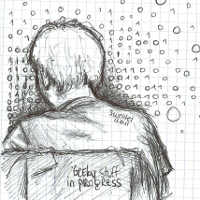A personal reader for Drupal
I'm happy to announce that the personal reader project I've been writing for Drupal is now available for download! You can install it on your website, and as a PWA on your phone or tablet. No more third party applications, just pure HTML, css and the power of Drupal. The layout is heavily influenced by the Mastodon project, but needs more tweaks to fix the responsive behavior.
The project consists of two parts:
- reader module: API for getting channels, streams etc. The main entry point is at /reader. Configuration is at admin/config/services/reader.
- reader theme: theme for displaying the content. The theme enables you to install the reader on the home screen of your mobile phone.
Modules that implement the api are ActivityPub and IndieWeb. Support for the core Aggregator module is also implemented.
I've recorded a short screencast showing the current interface and also how to install on a mobile phone! You can see channels from the IndieWeb microsub module and the local ActivityPub timeline of people I'm following on the Fediverse.
Happy reading!





